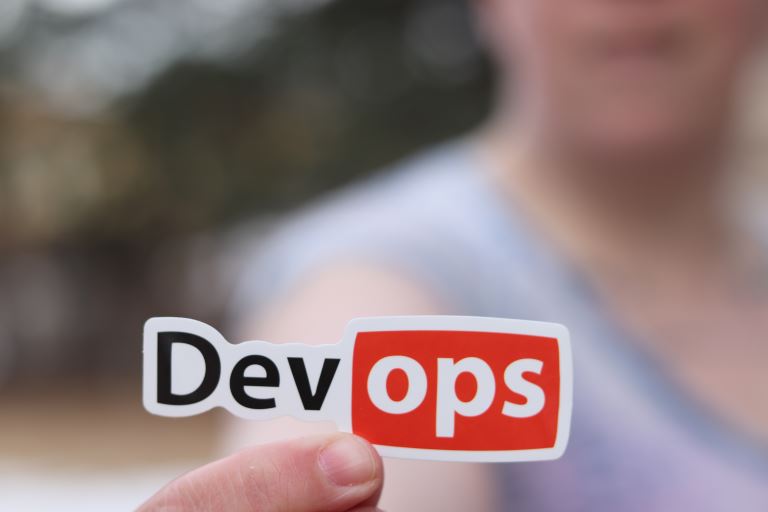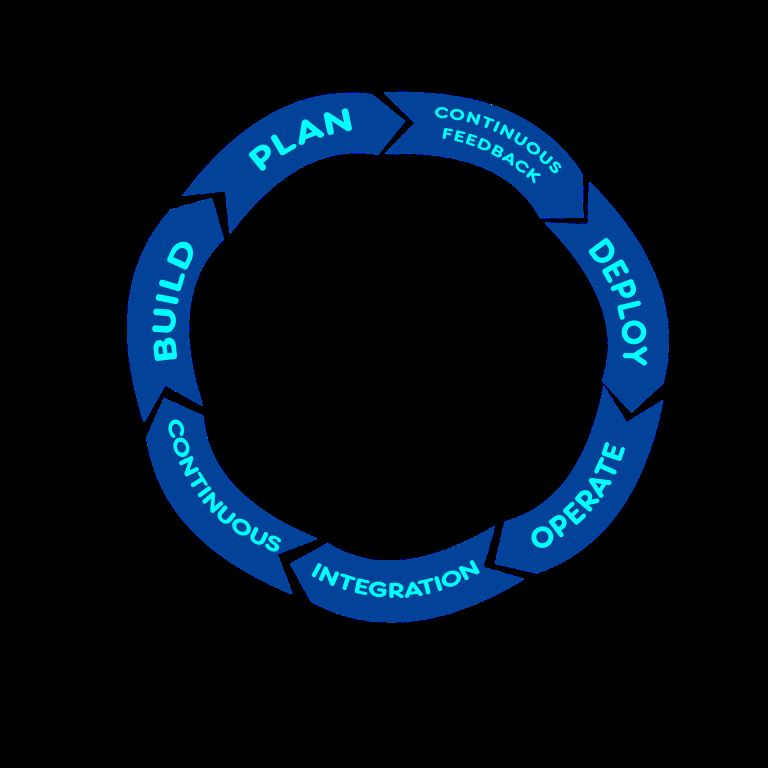
What are the Latest DevOps Automation Trends to Watch out for
pThere are several DevOps automation trends you should watch out for continued cloud adoption the rise of DevSecOps adoption of lowcode apps artificial intelligence and automation and microservice architecture Theres also the rise of Gitops cloudnati
Many people don't know about the latest trends in DevOps; these are the trends you should watch out for, especially if you are interested in investing in DevOps automation. This article will be beneficial in helping you learn about the latest trends in DevOps automation that you should watch out for.
There are several DevOps automation trends you should watch out for; continued cloud adoption, the rise of DevSecOps, adoption of low-code apps, artificial intelligence and automation, and microservice architecture. There's also the rise of Gitops, cloud-native infrastructures, hybrid work models, and much more. Read on for finer details on the trends.
Get to learn more about the reasons why you should hire a DevOps automation expert.
What are the Latest DevOps Automation Trends to Watch out for
Most businesses can achieve their goals by integrating DevOps, which is why many strive for better ways to create, deploy and manage their software development cycles.
The changing customer needs and trends are becoming a major setback for companies that want to meet customer needs and expectations. It would help if you learned about some of the DevOps trends you can use to your advantage to accelerate your digital transformation.
Here are the latest trends in DevOps automation.
1. Continued Cloud Adoption
Most businesses have been moving to adopt cloud infrastructure that supports cloud-based workflows and applications after the pandemic. A recent study by the accelerate State of DevOps found that organizations that use multi-cloud are more likely to meet their business performance goals than those that use traditional cloud strategies. As this trend continues, more businesses are expected to adopt hybrid or multi-cloud software in the coming days.
2. Rise of DevSecOps
Security is a significant challenge for any enterprise in the emerging digital world. Most security teams struggle to move fast and keep up with upcoming security trends. The integration of DevSecOps in the future will lower the risks and vulnerabilities in applications because DevSecOps integrates best practices in software delivery and development with a strong emphasis on security and observability.
3. Adoption of Low-code Apps
Adopting a low-code application approach in this fast-paced and demanding software market will be a game changer in many businesses as it provides a significant competitive advantage. The ability to build apps without coding knowledge in low-code platforms will contribute to developing software interfaces that manage application development processes. The entire process of creating simple and user-friendly apps is going to be fast as developers will build their workflows and logic.
4. Artificial Intelligence (AI) and Automation
The rise of AI and automation in recent years has impacted the significant operations of organizations. Ai and automation have improved how businesses interact with customers, employees, suppliers, and partners. AI and automation can play the same role in the DevOp processes by helping DevOp teams handle massive data by automating their processes.
5. Micro-Service Architecture
The adoption of microservice architecture will enhance greater efficiencies in software delivery. This is because teams are going to focus on building small pieces of functionalities that are going to be combined with larger systems. The frequent release of small features will make processes faster and cheaper. It is expected that most organizations will adopt DevOps practices.
6. Cloud-Native Infrastructures
Adopting cloud management platforms for DevOps on a large scale will give businesses a firm grip on their cloud operations. Most companies have managed and utilized their cloud resources by paving the way to set up a better cloud-centric platform to support applications and processes based on the cloud.
7. The Adoption of Gitops Wil Rise
A recent solution for controlling and automating infrastructure to the DevOps workflows is what we call Gitops. Gitops employ traditional development tools that automate cloud-native applications deployment, monitoring, and Maintainance by using a single Git. Gitops help businesses to manage their infrastructure better.
8. Hybrid Work Models
The desire by companies to work under traditional office layouts has led to the adoption of hybrid work models. Employees are provided with options to work remotely without affecting their output by companies through the adoption of hybrid work models. The adoption of DevOps has enabled organizations to adopt hybrid work models for better efficiency due to the rising need to work remotely.
9. Adoption of Container Technologies
Due to its ability to scale up and out, container technology is expected to be more critical in DevOps.Containers are used to host databases, websites, and other infrastructure. Therefore it is likely that the use of container technology by DevOps when they deploy applications at scale will be necessary. Providing custom resources that can handle large applications will make container-native aids popular.
Why should you hire a DevOps automation expert
DevOps automation experts are responsible for maintaining and administering the software system of your business. They are in great demand because each company strives to meet the industry standards and needs.
Here are the reasons why you should hire a DevOps automation expert;
1. They Maximize Efficiency
A culture that brings greater efficiency with collaboration between teams and automation to achieve the targets of the business requires a successful DevOps initiative. The DevOps experts try to reduce human dependency by automating the product cycle by identifying manual and repetitive work.
2. Utilization of Skillset
The DevOps professionals can know the person who has a practical skillset for a crucial process related to a product while automating the process. Hiring DevOps experts will enable your employees to carry out tasks related to their expertise. This will lead to increased output which may not be achieved without the input of experts.
3. Product Quality
DevOps experts can help your business identify automatable areas and how you can improve your production by using the report metrics from automation tools. When you hire professionals, your product's quality will likely increase.
4. Infrastructure Development
Hiring an expert will enable collaborations and act as a link between your teams, strengthening your business infrastructure. Expert DevOps enables system migration from the organization's old infrastructure, followed by automation for laborious processes, to assure consistent performance.
Additionally, DevOps specialists support changing product application strategies and assist with system configuration, maintenance, and support.
5. Implementation of Technical Capabilities
Professional DevOps have valuable project and time management skills to ensure that infrastructure development remains astable and agile during cloud migration. A DevOps Expert will help optimize the release cycles and remove the hidden time drains. They are always in the process of executing new software improvements to quicken operational procedures. Gets You to Focus on What Matters Most An automation expert can ensure your business succeeds by developing strategies for continuous intervention by providing that software is flexible, available, and highly adaptable. Experts can also help you to eliminate fears and myths about the benefits of DevOps to your business.
6. Cost Reduction
Your company will benefit from the assistance of a DevOps team or professionals in automating the apps and improving production efficiency. Hiring DevOps specialists also have the benefit of lowering IT expenses and accelerating time to market.
DevOps Roles You Need to Succeed in Implementing a DevOps Strategy
Every IT organization wants to adopt DevOps and the promise of faster software development and improved business agility that comes from streamlining and speeding up interactions between development and operations. While accepting new or redefined roles isn't enough to ensure a successful DevOps transformation, it is a necessary first step. Here are the roles and corresponding skill sets critical for any firm looking to implement a successful DevOps strategy.
| DevOps Role | Description |
| DevOps Evangelist |
The DevOps evangelist provides development and operational teams' buy-in, identifies essential responsibilities to support DevOps delivery methodologies, and ensures IT employees are trained and empowered to implement such changes. |
| The Release Manager |
Release managers are responsible for product management and synchronization from development to production. |
| The Automation Architect |
Automation architects, also known as integration specialists, assess, design, and implement strategies for continuous deployments while maintaining high availability on production and pre-production systems. |
| The Software Developer/Tester |
The developers are in charge of not just translating new requirements into code but also of unit testing, deployment, and continual monitoring. |
| The Security Engineer |
Security engineers collaborate with developers, including their recommendations far earlier in the process. They incorporate security into the product rather than adding it at the end. |
Conclusion
DevOps experts act as a link between the development team and the business at large; therefore, they should be able to work as part of the team. We will likely witness an increased demand for DevOps technologies in the coming days. As businesses strive to adopt and integrate DevOps into their operations, using cloud technologies in the future will bring greater focus on DevOps; however, as a business, you should utilize it to your advantage. You can reach out to Guru solutions for all your DevOps automation services.








